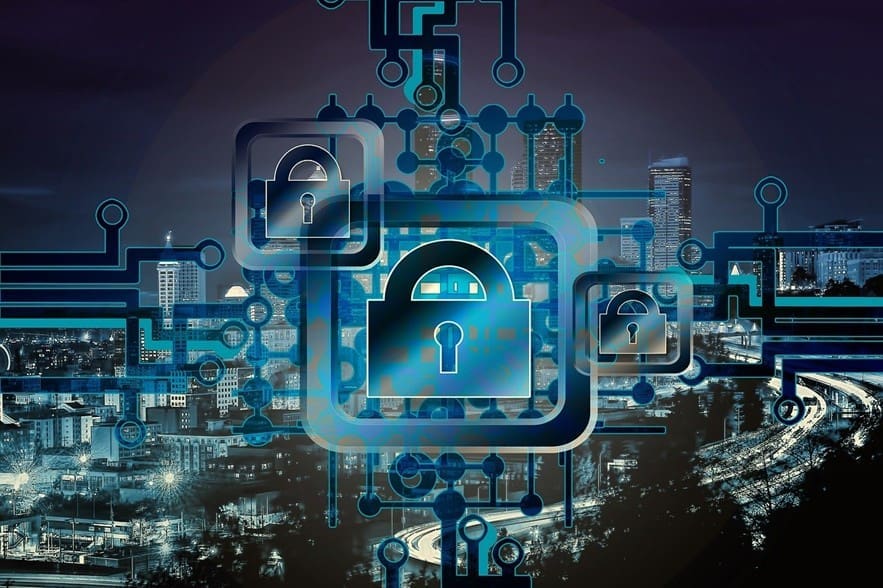The offshore oil and gas industry plays a crucial role in meeting the increasing global energy demand. However, it involves risks, such as its dependence on complex technological systems. Industrial Control Systems (ICS) are the key systems that manage all aspects of offshore oil and gas operations, from drilling to production and safety functions. With the digital transformation, the reliance on technology increases, and so do the cyber threats. Thus, it becomes important to employ cybersecurity in this industry.
This article provides an analysis of why security is equally necessary as production and focuses on how to secure ICS from the threats that exist and continue to evolve in the offshore sector.
- The Critical Role of Industrial Control Systems (ICS)
Industrial Control Systems (ICS), which include SCADA (Supervisory Control and Data Acquisition), Distributed Control Systems (DCS), and Programmable Logic Controllers (PLCs), are essential to offshore operations. Automated processes ensure seamless operations in an offshore environment.
For instance, managing a drilling process is regulated by a set of variables (i.e., pressure settings, temperature, drilling parameters, and safety shutdown).
When ICS systems were first developed, their isolated operational modes kept them safe and mobile when supporting offshore operations. As ICS systems have developed, they are now often connected to corporate IT networks to achieve real-time performance metrics and understand trends for data analysis. Although a corporate network connection offers increased speed and adaptability for its objectives, it also leads to an increased risk of cyber threats.
- Cyber Threats Facing Offshore Oil and Gas ICS
Cyberattacks on Industrial Control Systems in the offshore oil and gas sector have catastrophic consequences. According to multiple intelligence and research reports, threats can range from ransomware attacks that disable operational technology to nation-state actors like Russia, China, Iran, and North Korea looking to disrupt critical infrastructure.
For instance, the Stuxnet attack on Iranian nuclear facilities and the Triton malware on safety systems of petrochemical plants are evidence of how malicious threats can be tailored with sophistication and are therefore extremely damaging.
- Protective Strategies and Best Practices
To protect ICS from cyber threats, offshore oil and gas companies need a planned approach to enhance cybersecurity. This involves consideration of the segmentation of networks; operational segregation and decentralization, access to specific and trusted individuals, and constant monitoring to detect anomalous behavior. In addition, routine vulnerability checks and penetration testing allow organizations to assess and mitigate the potential risk of a cyberattack. Moreover, it is important to train the employees on how to deal with the risks and spread awareness about the same. Many companies align with and are accountable to cybersecurity frameworks (NIST Cybersecurity Framework), security controls for ICS (IEC 62443), International Maritime Organization (IMO) Cybersecurity Guidelines, and many more.
- Emergence of Cybersecurity-as-a-Service (CaaS)
To gain skills and understand the resource gap in offshore cybersecurity management, businesses are now using Cybersecurity-as-a-Service (CaaS), allowing operators to outsource risk detection, incident response, and compliance to firms that offer full-time support. CaaS solutions are valuable for smaller operators, where IT staff is often limited, and security is still required without the necessity of complete in-house security teams.
- Role of Artificial Intelligence and Machine Learning in Cyber Defence
Artificial Intelligence (AI) and Machine Learning (ML) technologies are changing how offshore cybersecurity platforms identify and respond to threats. These technologies allow systems to learn from patterns and detect anomalies in real time, enabling faster threat identification than rule-based systems. In offshore environments, where downtime is costly or threats can evolve quickly, AI-enabled analytics helps maintain operational security and continuity.
- Integration of Physical and Cybersecurity Measures
In offshore operations, there is a convergence of physical and cyber threats that must be managed through an integrated security and safety approach. It is possible for cyberattacks to disable physical safety and security systems or for attacks to facilitate the placement of malware directly onto a system. More organizations are integrating physical security and safety systems with cybersecurity tools, rather than using separate systems, so that access and behavior, as well as incidents and anomalies, can be monitored across both the physical space and cyberspace as a singular data set.
- Incident Response and Recovery Planning
While adequate precautions must be taken to prevent cyberattacks, there is no way to eliminate the cyber-breach risk. This means incident response and recovery planning must be considered. Any offshore company must have a clear outline for each phase of containment, communication to stakeholders, recovery, and legal obligations. Conducting exercises in containment will help make sure all stakeholders, from IT teams to rig workers, know what to do in the event of an incident. This reduces operational downtime and the damages associated with a cyber-breach.
- Vendor and Third-Party Risk Management
Offshore oil and gas operations usually rely on a network of third-party vendors (suppliers and contractors) who provide equipment, software, and services. If these supply chain partners are not managed effectively, they can serve as entry points for cyber threats. Attackers typically target areas where the supply chain is weakest or not closely monitored. As a result, offshore operators have to vet supply chain partners, monitor the partners, and include cybersecurity standards in all vendor contracts. In essence, operators should perform audits of their vendors, evaluate cybersecurity practices, and request documentation on their cybersecurity hygiene.
- Regulatory Compliance and Global Standards
As the cybersecurity environment becomes complex, regulatory bodies across the globe are increasingly tightening their security requirements for critical infrastructure, including offshore oil and gas. Since operators must comply with regional and international requirements, many organizations are viewing security as a standard process that is necessary to be adapted. These standards include the NIST Cybersecurity Framework, IEC 62443, provisions of the GDPR (for data protection), and IMO maritime cybersecurity guidelines. Compliance with standards not only protects the user’s assets but also saves the organization from facing legal liabilities, penalties, or reputational damage from not complying. Compliance also helps to streamline security processes and procedures across multinational operations to quickly initiate protective measures.
- Cybersecurity Culture and Executive Leadership
Cybersecurity must be emphasized based on organizational culture and buy-in from leadership. The offshore environments consist of high-risk, high-reliability systems, and one small lapse in attitude or activity can have catastrophic consequences. Executive leaders must view continuing cybersecurity as a business risk, not just as a technical issue, by investing in awareness campaigns, a security-first mindset, and accountability of cyber hygiene at all levels of the workforce. When there is an emphasis on security from leadership, it creates a tone that will drive behavioral and decision-making expectations across the organization.
Conclusion
With increasing threats, dependencies, and regulations, cybersecurity is essential for offshore oil and gas. From control systems to AI, physical and cyber integration, third-party risks, and security culture, the industry needs a holistic view of security. Cybersecurity is an integral component of safe, sustainable, and uninterrupted offshore operations in today’s digital world.






